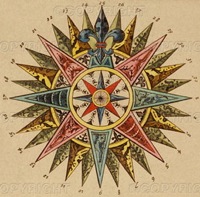Difference between revisions of "Classic"
| Line 1: | Line 1: | ||
[[Image:lighterstill.jpg]] [[Image:Cartography-compass-classic_~CMPAS_10.jpg|right|frame|]] | [[Image:lighterstill.jpg]] [[Image:Cartography-compass-classic_~CMPAS_10.jpg|right|frame|]] | ||
| − | In the traditional sense, a '''classic'' book' is one written in | + | In the traditional sense, a '''classic'' book' is one written in ancient Greece or ancient Rome (see [[classics]]). The word classic may, however, also be applied to [[literature]] and other [[art]] that is widely considered a model of its form. In this sense, classics comprise what some call a canon of world [[literature]]. However, it is no small matter of dispute what belongs in such an index of 'exemplary' work. |
| − | Most classics are many years old, but the word is sometimes pressed into use to describe newer works. Many classic books are, because of their age, now out of copyright and in the [[public domain]], and of these a large number are freely available | + | Most classics are many years old, but the word is sometimes pressed into use to describe newer works. Many classic books are, because of their age, now out of copyright and in the [[public domain]], and of these a large number are freely available on-line from sources such as [http://www.projectgutenburg Project Gutenberg], many university websites or commercial sites such as Literature Junction and The Literature Network. |
The phrase 'classic book' or 'classic literature' has taken on new meaning - many view any pre-1900 book still in print as a classic, or titles that is hundred years or older and still in print, and many books are classed as [[modern classics]] because of their contemporary significance or perceived future significance. | The phrase 'classic book' or 'classic literature' has taken on new meaning - many view any pre-1900 book still in print as a classic, or titles that is hundred years or older and still in print, and many books are classed as [[modern classics]] because of their contemporary significance or perceived future significance. | ||
Revision as of 18:09, 30 July 2008
In the traditional sense, a 'classic book' is one written in ancient Greece or ancient Rome (see classics). The word classic may, however, also be applied to literature and other art that is widely considered a model of its form. In this sense, classics comprise what some call a canon of world literature. However, it is no small matter of dispute what belongs in such an index of 'exemplary' work.
Most classics are many years old, but the word is sometimes pressed into use to describe newer works. Many classic books are, because of their age, now out of copyright and in the public domain, and of these a large number are freely available on-line from sources such as Project Gutenberg, many university websites or commercial sites such as Literature Junction and The Literature Network.
The phrase 'classic book' or 'classic literature' has taken on new meaning - many view any pre-1900 book still in print as a classic, or titles that is hundred years or older and still in print, and many books are classed as modern classics because of their contemporary significance or perceived future significance.
